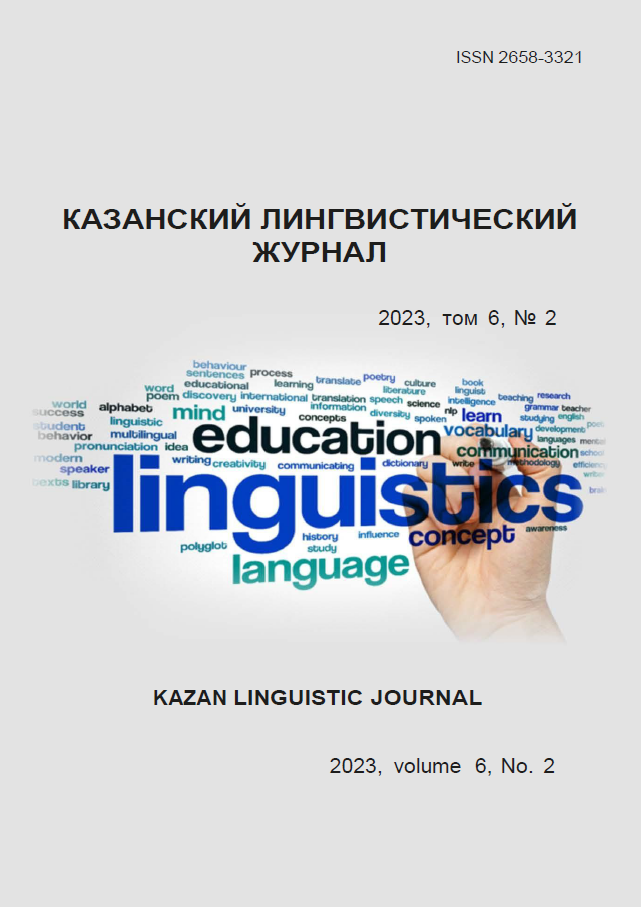Syntactic Transformations on the Example of Translating a Literary Work from Korean to Russian
https://doi.org/10.26907/2658-3321.2023.6.2.198-210
Keywords:
translation studies, literary works, syntactic transformation, Korean language, sentence members, phraseAbstract
The paper examined randomly selected sentences from the novel “Princess Bari” on the basis of available research, also compared and analyzed the original language and the translation language as a kind of translation transformation in the theory of comparative stylistics. In addition, this work can be considered the first study devoted to the previously unaffected comparison of syntactic transformation of the Korean and Russian languages. This study is of a formal nature and is aimed at comparing phrases. The relevance of the work is to present the main provisions of the study on the relationship between translation transformation and translation competence in general, so that the functions of translation transformation can contribute to a deeper understanding of the functions of grammatical categories. The comparison of the syntactic transformation of Korean and Russian phrases also deserves comparative linguistic research. This article includes: firstly, an analysis of previous studies of syntactic transformation; secondly, a comparison of the specifics of syntactic phrases in the Russian and Korean languages; thirdly, a discussion of the features of the syntactic transformation of the original text of the modern Korean work “Princess Bari” and its translation into Russian. Further in the work follows the analysis of the study and its results. In the end of the article, the relevant conclusions are drawn.
References
Reference
Khabibullina E.K. Linguistic transformations in the translation of Tatar literature into Turkish. Kazan: Kazan (Volga region) Federal University abstract dis. candidate of philological sci-ences; 2016. 283 p. (In Russ.)
Skripkina G.V. Syntactic transformations in translations of E.M. Remarque's novel “Three torvrishcha”. Cheboksary: collection of scientific articles based on the materials of the XXXI International Scientific and Practical Conference; 2021. pp. 441–450. (In Russ.)
Lee Hye-Seung. The comparative analysis of the translation into Russian and Korean on the basis of domestication and foreignization. Seoul: Interpreting and Translation Research In-stitute, Hankuk University of Foreign Studies.2013;17(1):203–223. (In Kor.)
Hwang Seok-young. Baridegi. Paju: Publishing Changbi; 2007. eBooks. (In Kor.)
Nida E. A. Morphology: The Descriptive Analysis of Words. Michigan: The University of Michigan Press. (in 1949); 1972. 342 p.
Choi Kyusu. Understanding Korean Morphology. 2nd ed. print. Seoul: Publishing Yeokrak; 2019. 392 p. (In Kor.)
Hwang Seok-young. Princess Pari. Translation from Korean into Russian by Andrey Ryzhkov. Moscow: Luch; 2015. 286 p. (In Russ.)






